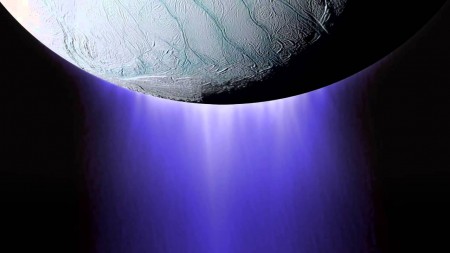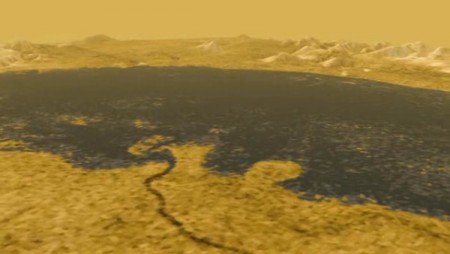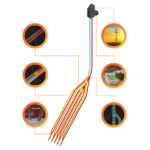July 10, 2016 – The more we study life here on Earth and the exotic places where it thrives, the more scientists are convinced that we will find it elsewhere in our Solar System. After all if microbes can thrive at the bottom of the deepest ocean trenches, and thousands of meters below the surface of the Earth why can’t they thrive in places like Mars, Europa, Enceladus and Titan?
When Juno arrived at Jupiter in the last week we were told that the mission to the Solar System’s largest planet was designed to avoid crashing into Europa because scientists didn’t want to contaminate that moon potentially introducing Earth microorganisms into an alien ecology. NASA hopes in a future mission to Europa to uncover the mysteries of its subsurface ocean and hopefully identify alien life there.
Evidence for life on Mars remains a question mark. Tangential evidence from the early Viking biochemistry experiments, the discovery of water ice by the Phoenix lander, evidence of water both in the past and present detected by orbiters and the two working rovers, Opportunity and Curiosity, and occasional whiffs of methane point to a likely biological source. But we won’t know for certain until we send further robotic landers and eventually human crews to the planet’s surface.
Most intriguing are two recent reports gleaned from the Cassini spacecraft continuing to study Saturn and its mini-solar system of moons. Cassini discoveries have included a subsurface water source under the icy crust of Enceladus. Cassini has flown through the icy particles ejected from the moon’s surface spewing water into space. The existence of a subsurface ocean similar to Europa is highly likely on Enceladus. And where there is water here on Earth we have life. So why not elsewhere in the solar system?
On the issue of how life could exist on Enceladus, Chris McKay, planetary scientist at NASA, states “You’re not just searching for life, you’re searching for an understanding of the nature of that life, and how it compares to life on Earth.” For example if we find life on Enceladus and it resembles Earth life then we may surmise that life originated in the Universe elsewhere and has spread to lots of places. But if the life we may find on Enceladus differs biochemically from Earth then we are looking at separate and independent life origins which has entirely different implications.
Today we know that Enceladus has more than 90 geysers (see image above) spewing salty water containing organic compounds into space. A mission to the moon doesn’t need to land there to discover if life exists. It just needs to fly through the geyser plumes and sample what it finds. The theory is that the geysers may produce bubbles of organic material including exotic biology that concentrate on the surface and get ejected when the subsurface water erupts. Any probe sent to Enceladus would have to include a biological laboratory capable of discerning proteins, amino acids and lipids in water samples. In finding this kind of evidence it would be definitive proof that Enceladus supports living organisms. Most scientists believe it would much harder to find the actual organisms themselves although some hope to devise technology that will capture images of Enceladus’ microbes.
Even more exotic would be the discovery of life on Titan, Saturn’s largest moon. Ever since Cassini and the Huygens lander gave us images of the landscape and lakes of Titan scientists have been speculating on whether a very different type of life could exist there in the extreme cold. A new study has focused on the presence of hydrogen cyanide (HCN) molecules in Titan’s atmosphere as evidence of life formed from polymers.
One of those polymers, polyimine is capable of creating complex molecules in the presence of light in a low temperature environment. Now consider that Titan’s surface is covered by lakes, rivers and substantial seas of methane (see image below) and you have an exotic chemistry for a different type of life, not water based as here on Earth, and capable of thriving at -180 Celsius (-292 Fahrenheit) degrees.
A probe landing on Titan would carry on board a chemistry lab that would be seeking evidence of a very different type of biology. And should it discover the building blocks of that life it will tell us that the Universe is far richer and more diverse in life than we ever imagined.
















